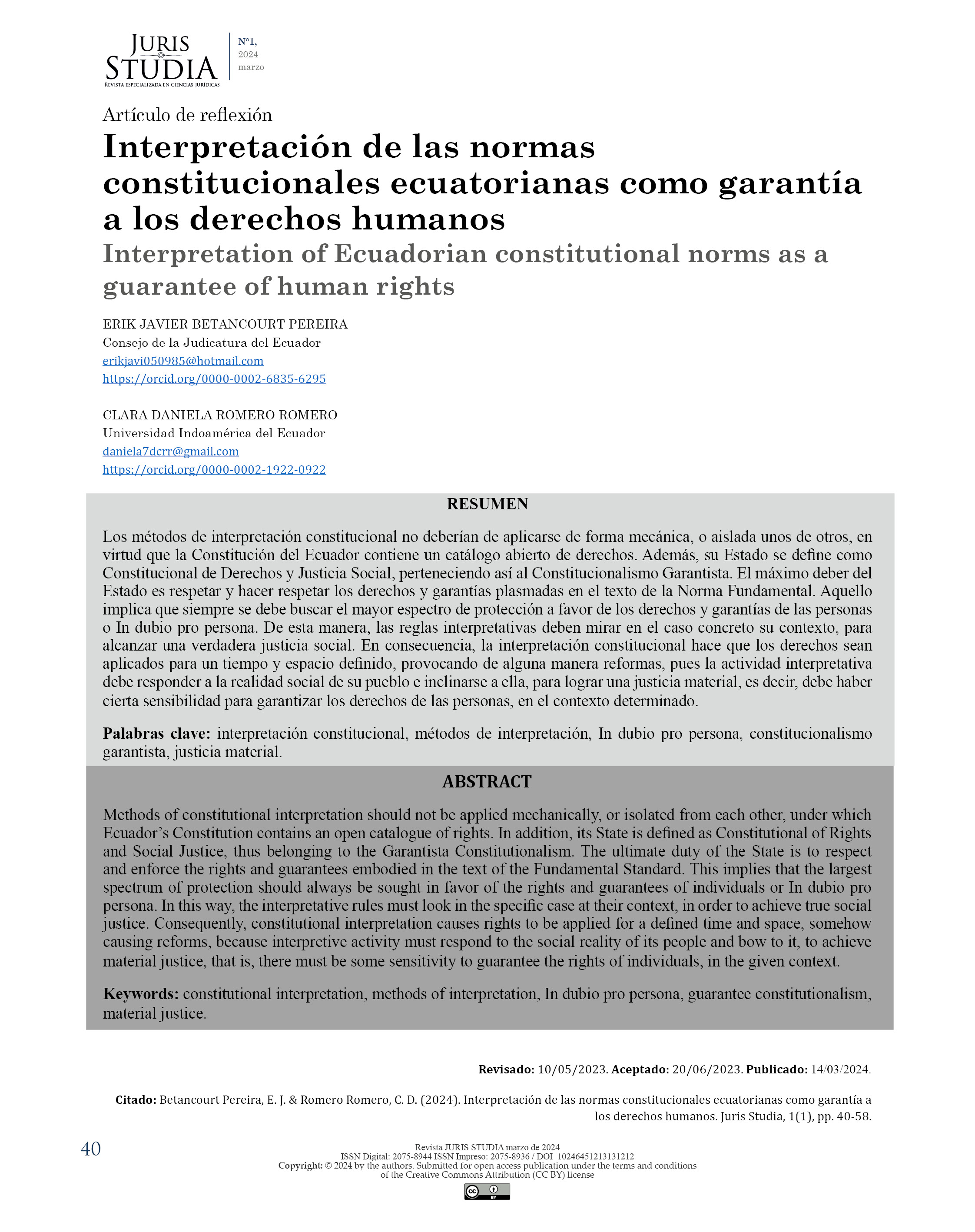Interpretation of Ecuadorian constitutional norms as a guarantee of human rights
DOI:
https://doi.org/10.52428/12345678.v1i1.1086Keywords:
constitutional interpretationAbstract
Methods of constitutional interpretation should not be applied mechanically, or isolated from each other, under which Ecuador's Constitution contains an open catalogue of rights. In addition, its State is defined as Constitutional of Rights and Social Justice, thus belonging to the Garantista Constitutionalism. The ultimate duty of the State is to respect and enforce the rights and guarantees embodied in the text of the Fundamental Standard. This implies that the largest spectrum of protection should always be sought in favor of the rights and guarantees of individuals or In dubio pro persona. In this way, the interpretative rules must look in the specific case at their context, in order to achieve true social justice. Consequently, constitutional interpretation causes rights to be applied for a defined time and space, somehow causing reforms, because interpretive activity must respond to the social reality of its people and bow to it, to achieve material justice, that is, there must be some sensitivity to guarantee the rights of individuals, in the given context.

Downloads
Published
How to Cite
Issue
Section
License
Copyright (c) 2024 ERIK JAVIER BETANCOURT PEREIRA, CLARA DANIELA ROMERO ROMERO

This work is licensed under a Creative Commons Attribution 4.0 International License.
Authors who publish with this journal agree to the following terms:
- Authors retain copyright and grant the journal right of first publication with the work simultaneously licensed under a Creative Commons Attribution License 4.0 that allows others to share the work with an acknowledgement of the work's authorship and initial publication in this journal.
- Authors are able to enter into separate, additional contractual arrangements for the non-exclusive distribution of the journal's published version of the work (e.g., post it to an institutional repository or publish it in a book), with an acknowledgement of its initial publication in this journal.
- Authors are permitted and encouraged to post their work online (e.g., in institutional repositories or on their website) prior to and during the submission process, as it can lead to productive exchanges, as well as earlier and greater citation of published work.










